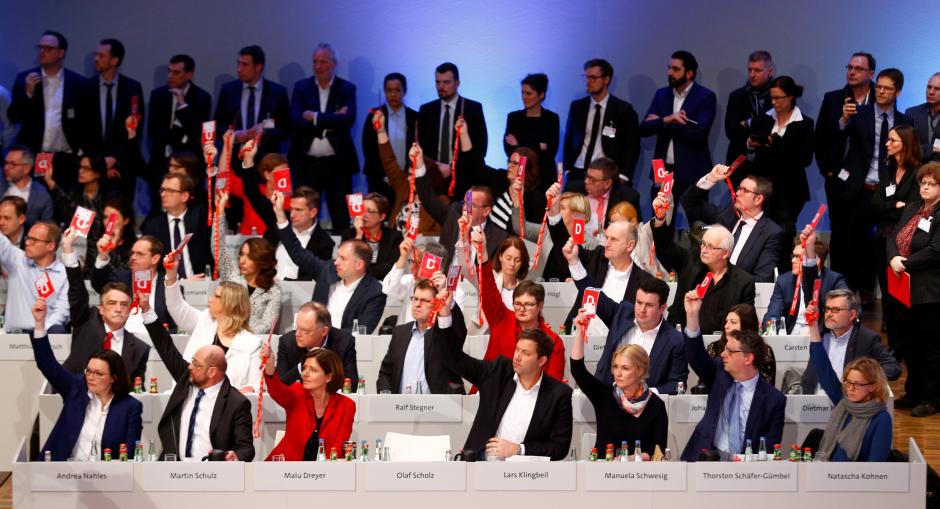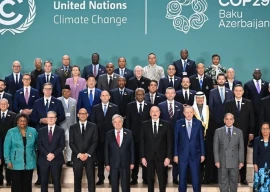
At a nail-biter of a party congress, 56 percent of SPD delegates voted to pursue coalition talks with Merkel’s conservative bloc on the basis of a blueprint agreed earlier this month.
Macron boosts Merkel ahead of key coalition vote
That was a narrower margin than many analysts had predicted and could embolden the SPD’s leaders to negotiate harder in talks.
The SPD vote will be a relief to investors who worry that policy making, both at home and in Europe, has ground to a halt.
Merkel, SPD leader Martin Schulz and the leader of Merkel’s Bavarian allies, Horst Seehofer, may meet on Monday and the full talks may start as early as Tuesday or Wednesday.
Seehofer has said he expects a new government to be in place in the first half of March.
However, a final coalition deal is far from guaranteed.
The SPD have demanded improvements to appeal to their wary 443,000 members who will be ballotted on any coalition deal. Many fear voters will punish them for sharing power with Merkel again.
Merkel risks leading weak 'losers' coalition for Germany
After Sunday’s closer-than-expected result, the pressure is on SPD leaders to deliver in key areas, such as abolishing the differences between public and private health insurance and allowing family reunions for asylum seekers.
Schulz, whose career was on the line on Sunday, said the vote handed him a “duty to fight for all those who had voted against”. “Let us now concretely improve the lives of people in the country,” he tweeted on Sunday evening.
The SPD’s parliamentary leader Andrea Nahles vowed to negotiate “until the other side squeals”.

1722586547-0/Untitled-design-(73)1722586547-0-165x106.webp)


1732326457-0/prime-(1)1732326457-0-165x106.webp)




1731325890-0/trump-(24)1731325890-0-270x192.webp)







COMMENTS
Comments are moderated and generally will be posted if they are on-topic and not abusive.
For more information, please see our Comments FAQ